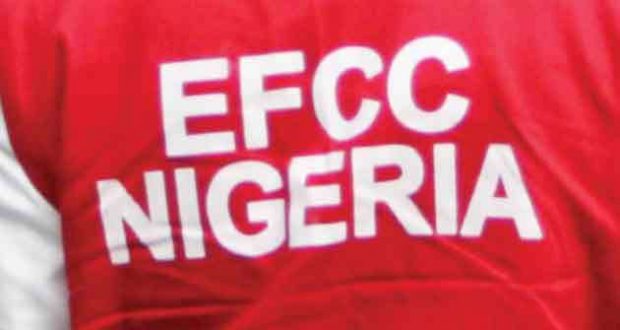There has been an impasse within the Nigerian government. This stems from the controversy on whether the President’s appointment of Economic and Financial Crimes Commission[1] (EFCC) Chairman requires confirmation from the Senate. The Senate had rejected twice President Buhari’s nomination of Mr. Ibrahim Magu as substantive EFCC Chairman. This prompted the Vice President Osinbajo to say that Magu does not need the confirmation of the Senate. This has led to standoff between the executive arm of government and its legislative counterpart. While the controversy rages, this is an attempt to provide a legal overview on the issue.
Analysis
The relevant provision of the law in dispute is Section 2(3) of the Economic and Financial Crimes Commission (Establishment) Act (EFCC Act) and Section 171 of the 1999 Constitution of the Federal Republic of Nigeria as amended. Section 2(3) provides as follows:
“The Chairman and members of the Commission other than ex-officio members shall be appointed by the President and appointment shall be subject to the confirmation of the Senate.[2]”
The above provision of the EFCC Act is clear and unambiguous. The Supreme Court has in plethora of cases laid the foundation on the canons of interpretation. The Court has held that where the words of a statute are clear and unambiguous, they should be read and understood as they are. The Supreme Court per Rhode-Vivour, JSC in UTOMUDO VS. MILITARY GOVERNOR OF BENDEL STATE & 4 ORS., [3] held that:
“Where the words in a statute are clear and free from any ambiguity they should be read and understood as they are without any embellishment.”
In this regard, the demands of Section 2 (3) EFCC Act is not in dispute. The President of Nigeria appoints, while the Senate confirms.
However, there seem to be an issue when the provision of Section 2(3) is juxtaposed with the provisions of Section 171 of the Constitution. The said Section 171 reads as follows:
“171 (1) Power to appoint persons to hold or act in the offices to which this section applies and to remove persons so appointed from any such office shall vest in the President.
(2)The offices to which this section applies are, namely
(a) Secretary to the Government of the Federation;
(b) Head of the Civil Service of the Federation;
(c) Ambassador, High Commissioner or other Principal Representative of Nigeria abroad;
(d) Permanent Secretary in any Ministry or Head of any Extra-Ministerial Department of the Government of the Federation howsoever designated [4]; and
(e) any office on the personal staff of the President.”
The provisions of the Constitution clearly empowered the President to appoint persons to hold offices and act in that capacity and to remove such persons. This power appears to be untrammelled. However, the power is limited when it comes to appointment of Ambassadors, High Commissioner or other Principal Representative of Nigeria abroad, such appointment is subject to confirmation by the Senate (See Section 171 (4) of the Constitution). Apart from this limitation, all other appointment captured under the section is made at the discretion of the President. Section 171(6) of the Constitution provides as follows:
“Any appointment made pursuant to paragraphs (a) and (e) of subsection (2) of this section shall be at the pleasure of the President and shall cease when the President ceases to hold office”
It is worthy to note that ministerial appointment does not come under this provision. Specifically, Section 147 (2) of the Constitution made any appointment to the office of Minister of the Government of the Federation subject to confirmation by the Senate.
By virtue of Section 171 (2) (d), the President does not require Senate confirmation in order to appoint Heads of any Extra-Ministerial Department howsoever designated. The question that begs for interpretation is whether the EFCC comes under “extra-Ministerial Department”?
The Constitution did not define “extra-Ministerial Department”. The Interpretation Act [5] equally did not provide any explanation as to this. Despite this, it could be deciphered from the modus operandi of the government that “extra-Ministerial Department” are government departments which function independently of any ministry. Such extra ministerial departments carry out its duties without any ministerial control or oversight. EFCC operates as an independent department and is not under the control or supervision of any Ministry. EFCC co-ordinates and enforces all laws relating to economic and financial crimes. It has liaison offices in various agencies of the government and financial supervisory institutions that are involved in the eradication of economic and financial crimes. Extrapolating from the foregoing, EFCC is an “extra-Ministerial Department” of the government.
As can be gleaned from the express provisions of the Constitution, the legal draftsman intended that some Presidential appointment be made subject to the Senate’s confirmation. In line with this, the draftsman made the appointment of Ambassador, High Commissioner or other Principal Representative of Nigeria abroad and Ministers of the Government of the Federation subject to confirmation by the Senate. If the draftsman had nursed the intention of making some other appointments subject to confirmation by the Senate, he would have gone ahead to state it clearly.
Going by this, it appears there is a conflict between the Constitution and the EFCC Act. While the EFCC Act subjected the President’s appointment of EFCC Chairman to the Senate confirmation, the Constitution made such appointment independent of the Senate. In view of the age-long principle of the supremacy of the constitution, the provisions of the EFCC Act as captured under Section 2(3) becomes void to the extent that it is inconsistent with the provisions of Section 171 (2) (d) of the Constitution. Section 1(3) of the Constitution provides as follows:
“If any other law is inconsistent with the provisions of this constitution, this constitution shall prevail, and that other law shall to the extent of the inconsistency be void.”
In JABIN ONESA OGAGA V. THOMAS E. UMOKORO & 3 ORS.,[6] the Supreme Court per Peter- Odili, JSC held thus:
“All existing laws and/or any provision in a state laws which are not in conformity or tend to derogate from the powers of such courts shall to the extent of such inconsistency, be void.”
Though from the above, the EFCC Act which prescribed confirmation by the Senate will be void based on the Supremacy of the Constitution, we await the judicial interpretation to finally lay the issue to rest.
Conclusion
In the writer’s opinion, the intendment of the legislature in making the appointment of the Chairman of EFCC by the President subject to confirmation of the Senate will be clearly appreciated if the Nigerian milieu is taken into cognisance. The position is quite sensitive and corruption has been an enigma in Nigeria. If the President is allowed to appoint and dismiss at his discretion, this might lead to political witch-hunting and selective fight against corruption. However, the law is the law and cannot be what it ought to be. The President’s appointment of Economic and Financial Crimes Commission (EFCC) Chairman does not require confirmation from the Senate.
[1] The Economic and Financial Crimes Commission Establishment Act 2004, mandates the EFCC to combat financial and economic crimes. The Commission is empowered to prevent, investigate, prosecute and penalise economic and financial crimes and is charged with the responsibility of enforcing the provisions of other laws and regulations relating to economic and financial crimes
[2] (2014) 47 WRN Page 1
[3] Emphasis supplied
[4] Emphasis supplied
[5] Cap.I23 LFN 2004
[6] (2011) LPELR-SC.224/2003
The opinions in the articles are for general information purposes only and do not form a legal relationship or be taken as legal advice. To explore legal advice, please consult your solicitor or feel free to get in touch with us directly.


